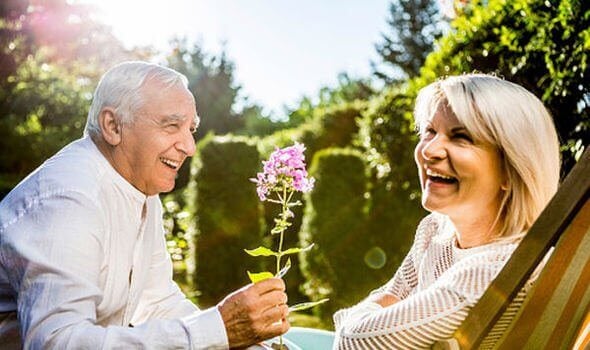Studies show that average emotional intelligence in the elderly is quite high, they appreciate and care for social relationships. They know how to appreciate the present, regulate their emotions to adapt to each moment and evaluate their environment and what happens to them in a more positive way; Enjoy more, have a more relaxed and optimistic approach to your reality.
It is quite possible that more than one person has been surprised by the results of this research that has given greater visibility to both the University of Texas and the University of California, Berkeley.
- Today.
- We still have a somewhat negative view of older people and their aging process.
- We associate older age with physical decline.
- Decreased cognitive abilities and.
- Desperately.
- Unhappiness.
- Low motivation and social and emotional isolation.
- I.
- E.
- Losses?especially with losses.
“With sunrise and sunset, day and life age and give way to everything that has made me happy one day or all of my life. -Dahlke-
It is clear that aspects such as the fall of healthy adulthood are a very important contribution to facing this stage: the fewer limitations, the better possibilities and more varied.
It is also clear that the personality and circumstances of each influence the choice of one life center or another, however, what they put on the table with these works is that the ability to manage one’s own emotions, as well as recognize one’s feelings. and feelings of others, improves on average, especially from the age of 60.
We’re not talking about anything normative. This does not mean that emotional intelligence improves in all over the years, but that experience allows most people to better manage emotional processes and orient them, in turn, to prioritize something fundamental: social relationships.
Being over 60 is not synonymous with loneliness, dissatisfaction or decline, it was left behind more than a decade ago.
Life expectancy is already crossing the 80-year line, and you could say that 60 years is like a second youth and 70 a rested maturity, so we can all see today that our grandparents are generally incredibly active.
They participate in endless activities in their community, travel, have fun with their friends, care for their grandchildren and are a constant and almost essential support for their children; in this way, and although many people face some physical pain and even the void of some loss, many older adults demonstrate effective emotional abilities.
But how do they do it? Body deterioration is there, as are health problems and even economic and social problems. So how can older adults maintain such a good level of emotional and emotional well-being?We can uncover secrets through the Oxford University Journal of Gerontology. .
We start from some hypotheses that, combined, could explain the feeling of satiety that we see reflected in many older people:
The increase in emotional intelligence in the elderly can be explained by the theory of emotional selectivity and the theory of dynamic integration.
Good emotional intelligence in the elderly results in a better quality of life, and health indicators are also linked to this factor.
Good management of the emotional world reduces stress, depression and improves all daily goals faced by older adults: loss, illness, addiction, etc.
Remember that emotional intelligence is not the rule, it doesn’t appear over the years, not everyone knows what it is and, if you know it, you don’t always apply the best strategies effectively.
Therefore, an interesting strategy would be for each community to implement an emotional intelligence program aimed at the elderly without deterioration or cognitive decline.
High levels of emotional intelligence in older adults translate into a better quality of life.
The objective would be to shape the multidisciplinary outreos of each individual’s individual based on their personal reality. Old age is sometimes accompanied by a personal crisis. This is where wear, discouragement and disappointment are usually present.
Qualifying older adults in dimensions such as empathy, emotional regulation, or social skills would greatly promote the aging process itself.
Do we consider emotional intelligence in the elderly? And also in the younger ones?As a health secret, as an engine to generate a more vital seniority, more integrated into society itself and, of course, happier. Life expectancy is increasing and we have the right to enjoy it with intensity and with the best resources.

